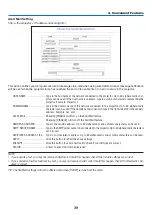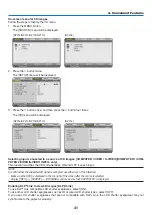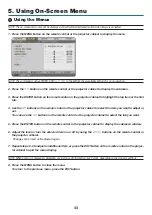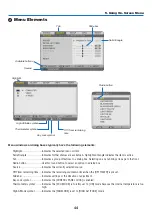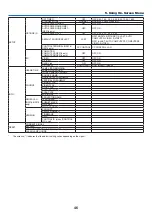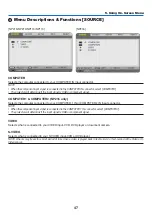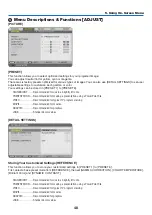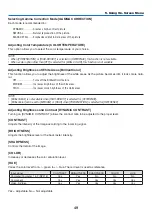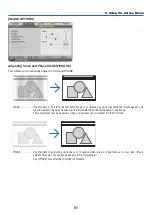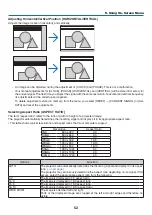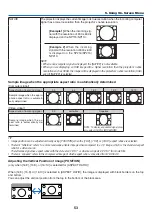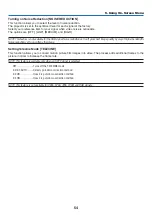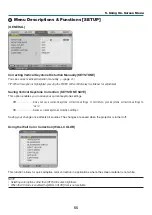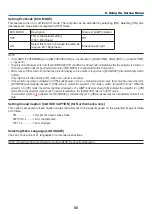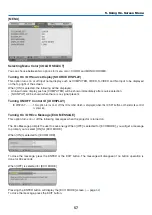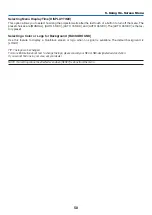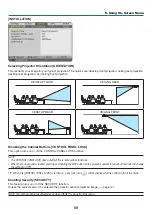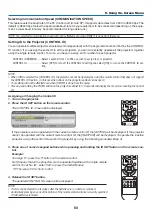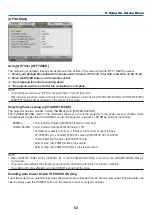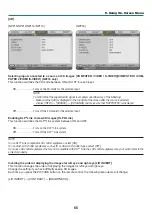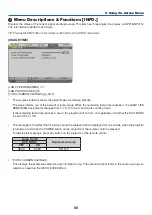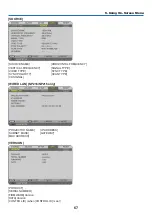
52
5. Using On-Screen Menu
Adjusting Horizontal/Vertical Position [HORIZONTAL/VERTICAL]
Adjusts the image location horizontally and vertically.
- An image can be distorted during the adjustment of [CLOCK] and [PHASE]. This is not a malfunction.
- Your manual adjustments for [CLOCK], [PHASE], [HORIZONTAL], and [VERTICAL] will be stored in memory for
the current signal. The next time you project the signal with the same resolution, horizontal and vertical frequency,
its adjustments will be called up and applied.
To delete adjustments stored in memory, from the menu, you select [RESET]
→
[CURRENT SIGNAL] or [ALL
DATA] and reset the adjustments.
Selecting Aspect Ratio [ASPECT RATIO]
The term “aspect ratio” refers to the ratio of width to height of a projected image.
The projector automatically determines the incoming signal and displays it in its appropriate aspect ratio.
• This table shows typical resolutions and aspect ratios that most computers support.
Resolution
Aspect Ratio
VGA
640 x 480
4:3
SVGA
800 x 600
4:3
XGA
1024 x 768
4:3
WXGA
1280 x 768
15:9
WXGA
1280 x 800
16:10
WXGA+
1440 x 900
16:10
SXGA
1280 x 1024
5:4
SXGA+
1400 x 1050
4:3
UXGA
1600 x 1200
4:3
Options
Function
AUTO
The projector will automatically determine the incoming signal and display it in its aspect
ratio. (
→
)
The projector may erroneously determine the aspect ratio depending on its signal. If this
occurs, select the appropriate aspect ratio from the following.
4:3
The image is displayed in 4:3 aspect ratio.
16:9
The image is displayed in 16:9 aspect ratio.
15:9
The image is displayed in 15:9 aspect ratio.
16:10
The image is displayed in 16:10 aspect ratio.
WIDE ZOOM
The image is stretched left and right.
Parts of the displayed image are cropped at the left and right edges and therefore not
visible.


